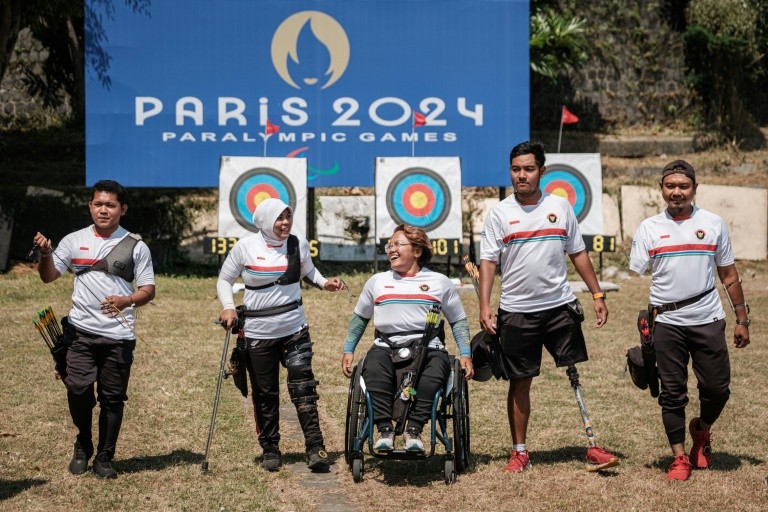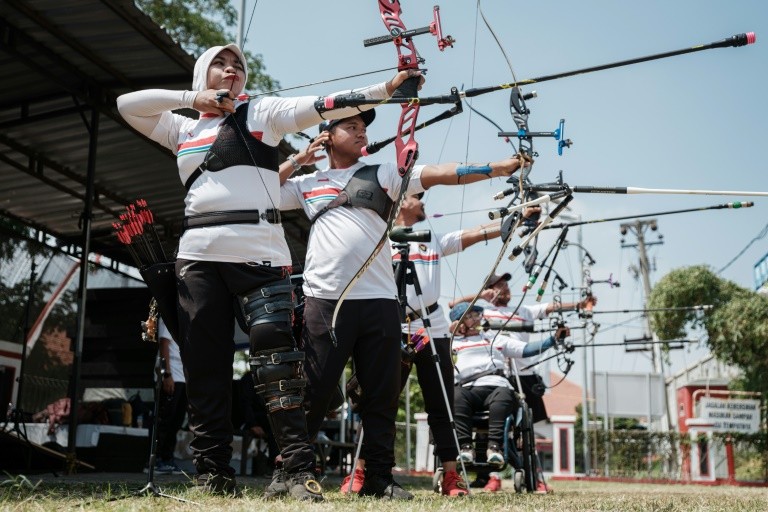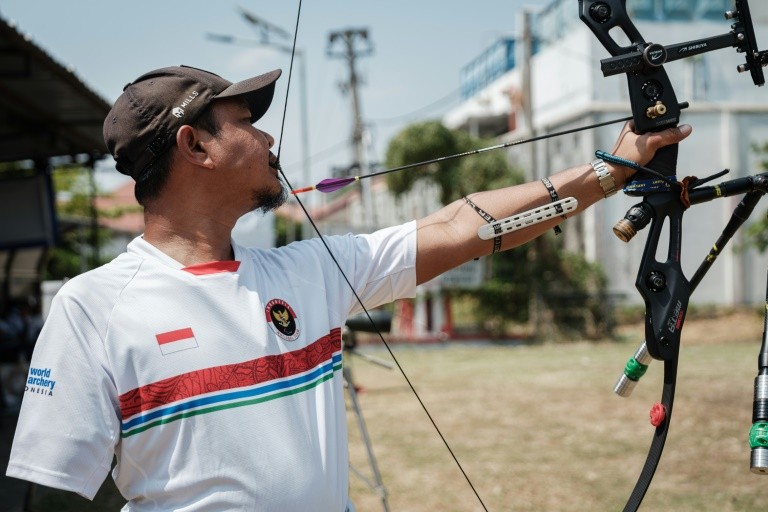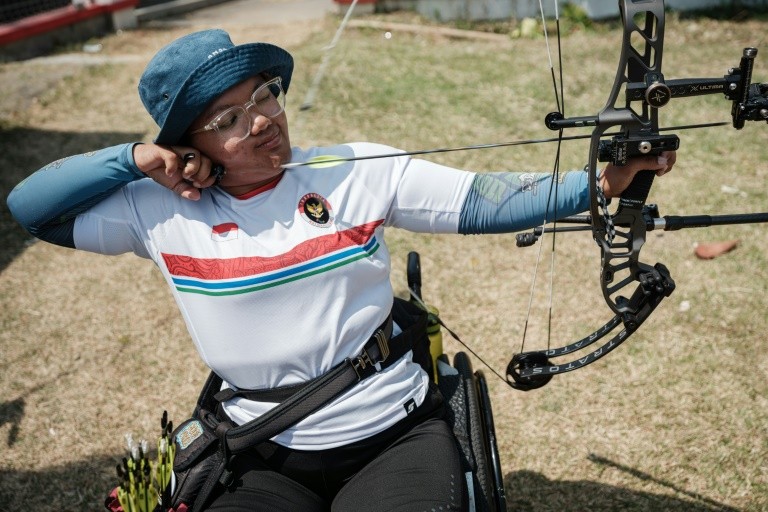
Five Indonesian archers who have lost an arm or a leg train together under the bright Central Javan sun, drawing their bows and closing one eye to shoot at targets as they prepare for the Paralympics in Paris this month.
The "magnificent five" are the first archers to ever qualify for the Paralympics from Southeast Asia's biggest country, and they are now training their sights on medals.
"It is history. Simply amazing," Ken Swagumilang, who had his leg amputated due to bone cancer and qualified for the compound men's standing competition, told AFP in Surakarta city.
The group of archers are aiming to carve out their own legacy with family and government support.
The five men and women -- in both standing and wheelchair categories -- will compete in the recurve and compound archery brackets.
"It's not just one or two athletes, it's five, imagine. It's the first time, and five athletes will compete," said Ken.

The 2022 Asian Para Games bronze medallist, who now stands on a prosthetic leg, sees a Paralympic semi-final as his realistic ambition but dreams bigger.
"Who doesn't want to win a gold medal?" he said.
Years of hard work have strengthened their bodies to draw the bow and shoot arrows with high levels of accuracy.
Their optimism has risen after bagging two golds at the Para-Archery World Ranking Event in the Czech Republic in June and two archery bronzes at the 2022 Asian Para Games.

Kholidin, one of the gold medallists in June, is the only Indonesian Paralympic archer who can't draw the bow by the arm after his right limb was amputated following a fall from a coconut tree in 2017.
He will compete in the recurve men's standing event, using his teeth to draw his bow.
"I tried using the foreteeth, but it made me unable to eat. It was extremely painful for 3 days. Then I tried using my side teeth until they were bleeding," he said.
Kholdin now comfortably draws 40 pounds of bowstring using his molars, a weight equal to about 4.8 gallons of water.
"Me and my para archer friends... we want to show that we can do better and make achievements," he said.
Kholidin says better government backing has boosted the performances of the para-archers.
"They are supporting us more and making us enjoy participating in tournaments abroad more. We have participated in many tryouts. To Thailand, Dubai, Australia, China," said the 46-year-old.
The Indonesian National Paralympic Committee (NPC) says it is not targeting any medals from the games in Paris.

But its archers say they don't just want to make up the numbers at the Paralympics.
"My target is a gold medal," said Kholidin.
As the games approach, some of the archers traveled to Europe early to adapt to the weather, with some saying the cooler climes would be challenging compared to their normal tropical training temperatures.
"In Indonesia, we get used to training in 30 degrees Celsius, 27 in the morning maybe. And in the afternoon, like at 12 or 13 pm, it's probably 34, 35 degrees," said Ken.
Teodora Audi Atudia was a high school student when she lost sense of her lower body after a car accident damaged nerves in her spine.
She started archery to train her arms, but it has now brought her to the biggest global event for athletes with disabilities.
She will now fulfill a dream, competing in the compound women's wheelchair category in Paris.
"I just want to say to people out there who have not fought yet, there is something better ahead," said Audi.
"So, let's fight!"








